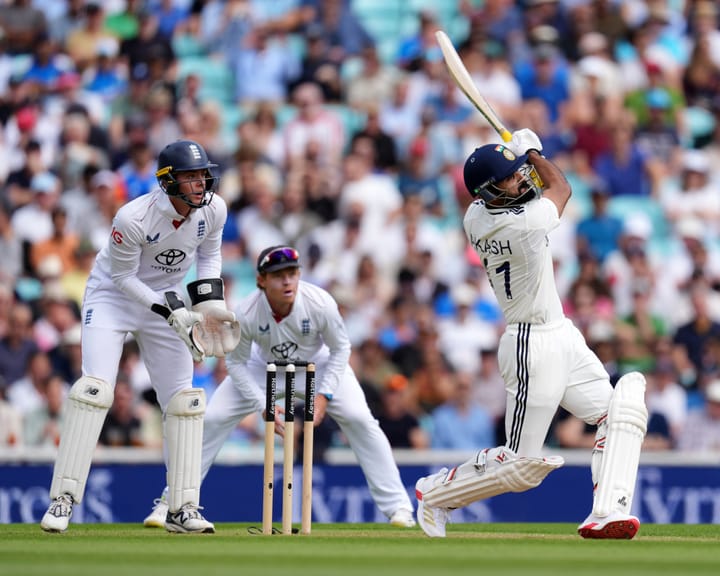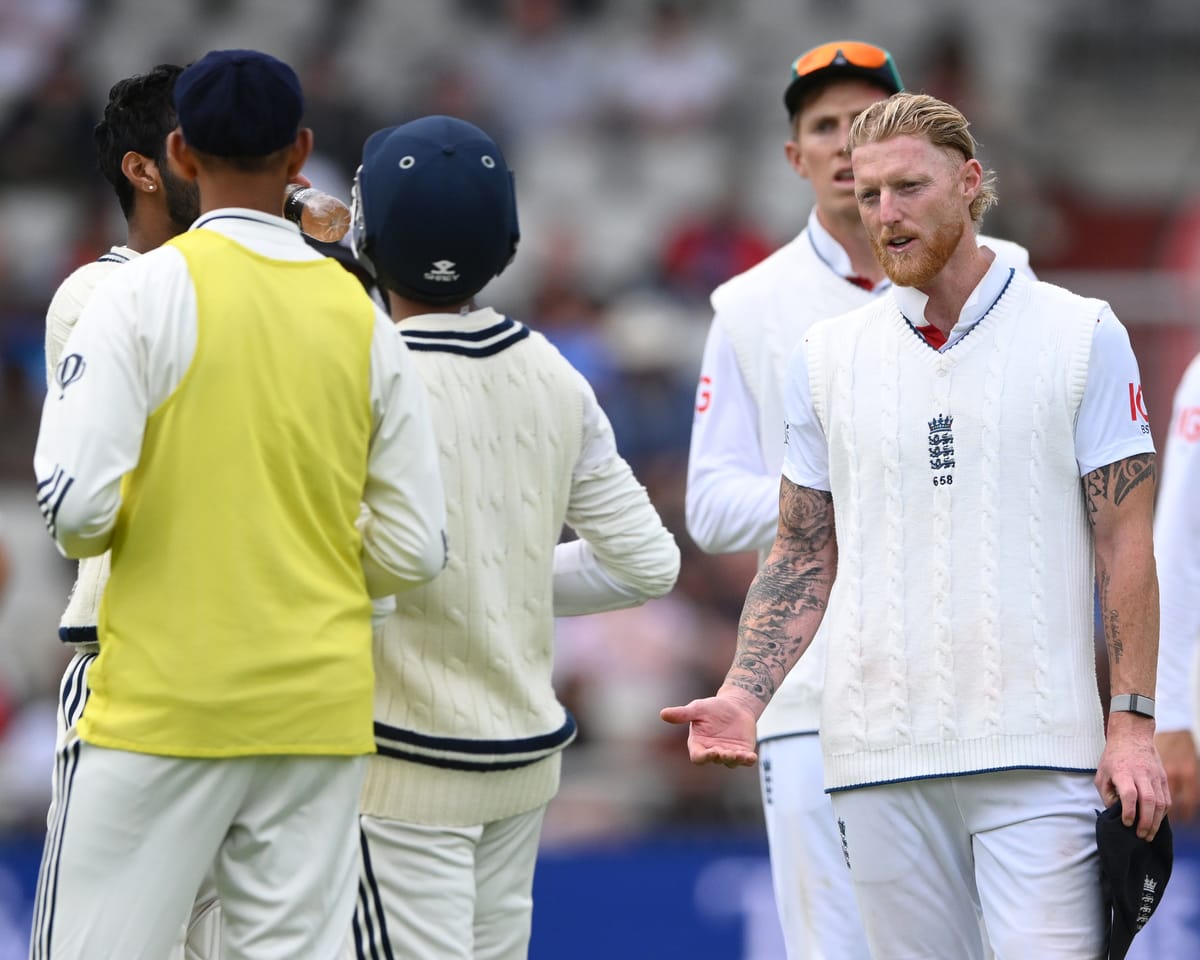India spent a day with Manchester United’s squad before the fourth Test, only to later deliver a collective defensive performance rarely matched in recent seasons at the other Old Trafford. However, they weren’t the only ones to deviate from their usual preparations.
Gilbert Enoka, the All Blacks advisor known for his “no dickheads” policy, worked with England during training days, only for them to momentarily behave in a manner that suggested their adoption of such principles was still unfinished.
The incident has since been dubbed handshake-gate. At 5:20 p.m. on the final day, with the draw inevitable and only an hour remaining, Ben Stokes wanted his players off the field quickly after 143 overs of labor yielded just four wickets. While a handshake at such a stage is customary, the rules allow an early finish if both captains—or the batters at the crease, acting on their leader’s behalf—agree. The request was neither unreasonable nor unusual.
However, India chose to bat on, hoping to reward two players with centuries they felt they deserved. Ravindra Jadeja, on 89, had already scored four Test hundreds, while Washington Sundar, on 80, was chasing his first. Though reaching 100 is often a symbolic milestone, players covet three figures, knowing their careers will be judged by them. Refusing England’s offer and giving their fans something to cheer was, likewise, not unreasonable.
As tedious as the final stages were, England simply had to endure them. Harry Brook bowling some part-time deliveries to spare the main bowlers was acceptable, but the sarcastic remarks—shouts of “Embarrassing” and “Fucking hell, Washi, get on with it”—crossed a line. Unlike their aggressive approach at Lord’s (a legitimate tactic in pursuit of victory), this seemed like frustration at being denied an early finish.
There is some context, however. Kevin Pietersen correctly noted on social media that Stokes and his team were exhausted—a state India seemed content to prolong. This has been a grueling series for both sides, the kind that can lead to lapses in discipline. Four demanding five-day matches in five weeks have taken a physical and mental toll, something shorter formats simply can’t replicate.
The tension in this series, at the very least, reflects the intensity that fans expect. It’s why Test cricket still dominates television revenue in the UK, or why Virat Kohli once claimed an Indian Premier League title was “five levels” below a Test achievement. While franchise cricket has its moments, the long game remains the ultimate test.
Read next

"Guardian Sport Weekend: Lions' Third Test, England vs. India, Women’s Open Action"
Rugby Union
11am Australia v British & Irish Lions live
The Lions enter the third and final Test against the Wallabies with a chance to secure a historic series sweep, an achievement not seen in decades. Lee Calvert will provide updates throughout. No Lions team has remained undefeated since Willie

Wallabies crush Lions' clean sweep bid in storm-lashed Sydney clash
Lions Fall Short as Wallabies Secure Series Finale
The hopes of a dominant tour for the British & Irish Lions came to an end as they suffered their first defeat in Australia on a rain-soaked evening in Sydney. The home side rose to the occasion, overcoming challenging weather and a

"Live: England vs India in fifth men's cricket Test, day three"
39th over: India 155-2 (Jaiswal 80, Akash Deep 51) Overton moves away from short-pitched deliveries, conceding just a single.
Guy Hornsby observes, "England will regret those dropped catches as the runs pile up, especially once Jaiswal reaches his century. Woakes’ absence was significant, though England managed well initially. Now,

